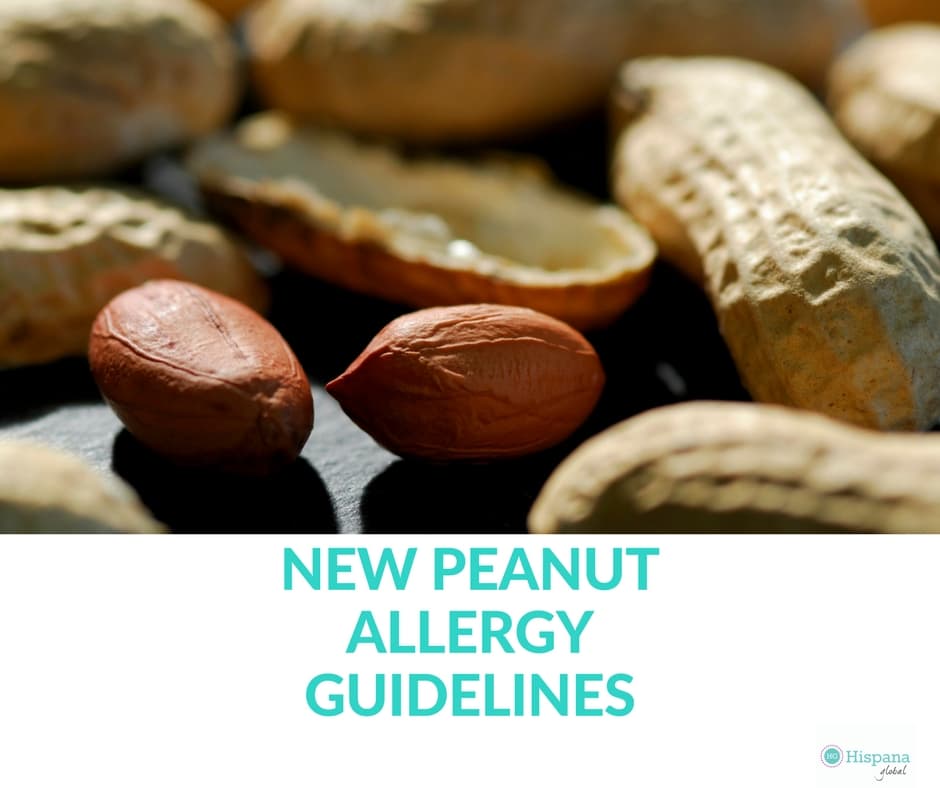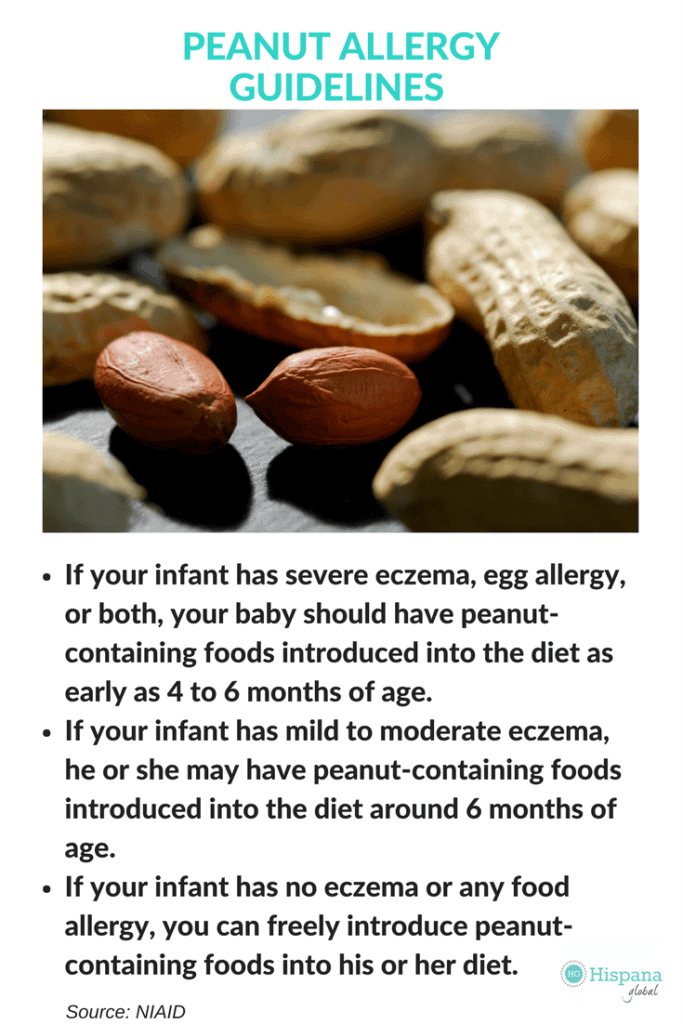What You Need To Know About New Peanut Allergy Guidelines

Currently, food allergies affect an estimated 5 percent of the children in the United States, according to the U.S. Centers for Disease Control and Prevention. While partnering up with Baptist Health South Florida, I saw that there are new U.S. health guidelines for children who might be at risk of developing a peanut allergy. Experts now urge parents to give their children foods containing peanuts early on, even at infancy.
The new guidelines from the National Institute of Allergy and Infectious Diseases (NIAID), part of the National Institutes of Health, suggest that parents introduce peanut-containing foods into the diets of their infants as early as 4 to 6 months of age to reduce the risk of developing a peanut allergy. If your baby already has eczema, egg allergy or both, your child is considered high risk, so you should discuss whether you need to introduce peanuts early on.
How to introduce peanuts to your infant? Babies should be given puréed food or finger food containing peanut powder or extract. The report emphasizes that infants and small children should never be given whole peanuts due to the risk of choking. “We are seeing a greater awareness of food allergies as incidents increase,” said Javier Hiriart, M.D., a pediatrician and physician with Baptist Health Primary Care. “Parents of infants should introduce new foods in stages to keep track of any reactions and report any potential allergies to their pediatrician.”
What the new peanut allergy guidelines say
Every child is different so please discuss with your baby’s pediatrician any history of allergies in your family. Do not introduce anything into your baby’s diet without talking it over with the doctor, because guidelines change and new research is constantly coming out.
The family doctor or pediatrician may choose to conduct an allergy blood test or send the infant to a specialist for other tests, such as a skin-prick test or an oral food challenge, the NIAID states. The results of these tests will help decide if and how peanut foods should be safely introduced into the infant’s diet. “Once you know that your child has had some type of reaction, your doctor can confirm with additional testing,” Dr. Hiriart said.
Here’s an overview of the most recent NIAID recommendations:
- Guideline 1: If your infant has severe eczema, egg allergy, or both (conditions that increase the risk of peanut allergy), your baby should have peanut-containing foods introduced into the diet as early as 4 to 6 months of age. This will reduce the risk of developing a peanut allergy.
- Guideline 2: If your infant has mild to moderate eczema, he or she may have peanut-containing foods introduced into the diet around 6 months of age to reduce the risk of developing peanut allergy. However, this should be done with your family’s dietary preferences in mind.
- Guideline 3: If your infant has no eczema or any food allergy, you can freely introduce peanut-containing foods into his or her diet. This can be done at home in an age-appropriate manner together with other solid foods.
Hopefully, these new guidelines will help less children develop a life-threatening peanut allergy. For more information, check out the Baptist Health South Florida blog.
Disclosure: this post is part of a sponsored collaboration with Baptist Health South Florida but all opinions are my own.








